An Australian photographer has been requesting random strangers to smile for an ongoing digital project soon to debut at a Mumbai gallery
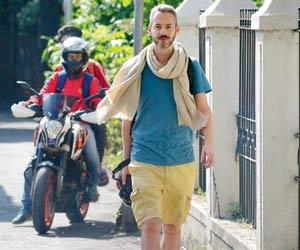
On a Wednesday morning, the cottages that line St Roques Road in Bandra bask in the winter sun. The lane is quiet, except for the occasional bark of a pet or scooters zooming off into the nearby Ranwar village. As a taxi driver wipes the dust off his kaali peeli, Jay Weinstein approaches him with a camera in tow. He doesn't ask for his name, ethnicity or life story; only for a couple of photographs. Seeing him puzzled, the Australian-origin photographer breaks into crisp Hindi, "Main kahin bhi jaata hoon, anjaane logon ki tasveer banata hoon [Wherever IâÂu00c2u0080Âu00c2u0088go, I make images of strangers]."
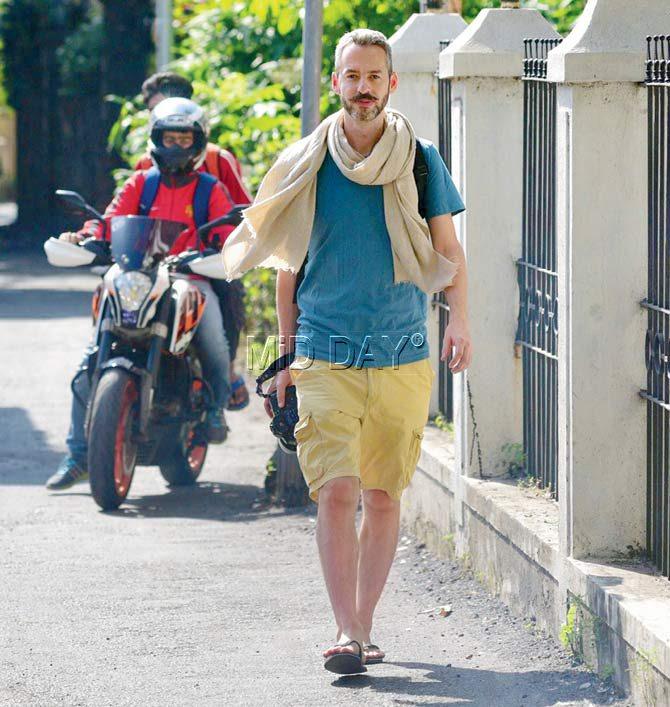
Hearing the familiar language, the driver is game to play the subject. First, he's asked to wipe the expression off his face and stand next to his cab. Satisfied with the shot, Weinstein tells him, "Ab muskuraiye [now smile]," and captures his wide grin on camera. The interaction lasts only for a few minutes but we spot the driver smiling even after Weinstein's DSLR is back in his bag.
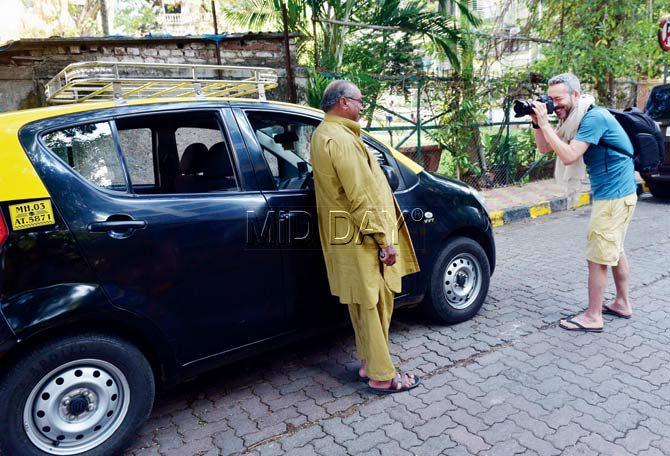
Jay Weinstein documents the smile of a taxi driver in Bandra. Pics/Bipin Kokate
This connection forms the essence of the 38-year-old's ongoing photography project, So I Asked Them to Smile (SIATS). Over the last two years, Weinstein has shared 250 portrait pairs - non-smiling and smiling frames of kids and adults from all walks of life - on digital platforms. Next week, he will display 30 most compelling frames for the first time at an exhibition.
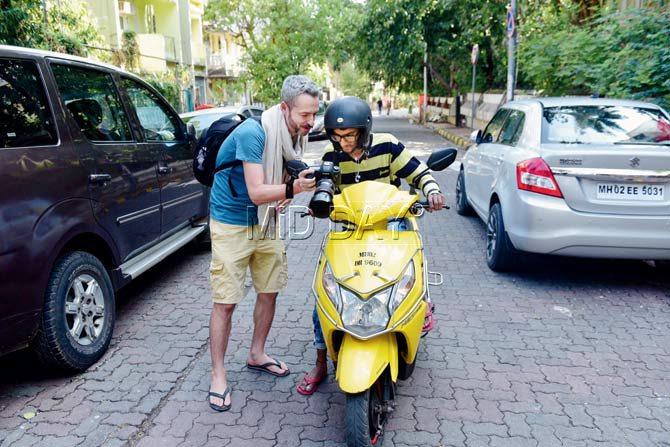
The photographer shows the images he takes to each subject
The backstory
It was a trip to Bikaner in 2013 that gave birth to this project. When Weinstein raised the camera to photograph a man with a wispy beard, he was greeted with a stern look. Miffed, he turned away, only to hear the man urging him to take his picture. "We make judgments about strangers in binaries as friendly-unfriendly or good-bad. These are rarely accurate. The idea is to change the way we view a stranger, and see how their smile changes our assumptions," says the US-born photographer, who spent his growing up years in Vrindavan, studied recreational sports coaching in Australia and returned to Mumbai in 2004 to pursue acting.
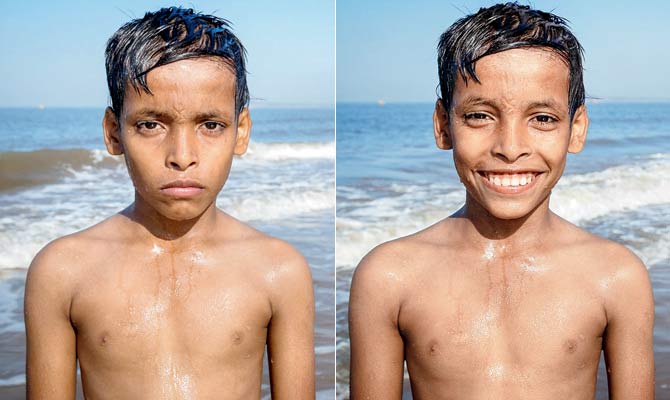
"He was jumping around in the water with a friend one afternoon, as I wandered down Juhu Beach," says the photographer
Soon, he ventured into advertising, and rekindled his love for travel and photography. "It gave me a reason to notice things that we walk past, and start conversations with strangers,"âÂu00c2u0080Âu00c2u0088says Weinstein, who considers the art meditative. "The calmer you are, the more of the outside world you notice."
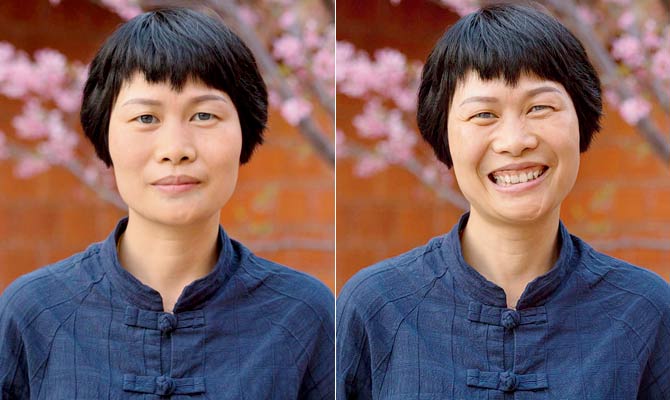
"She was exploring the stunningly restored Kaiyuan temple complex one evening, with her daughter in Quanzhou, Fujian, China"
Say cheese
For the last few years, he has turned a full-time traveller and spends most of his time in India. "I love Mumbai but when you step out, you realise how different the rest of India is," shares Weinstein, who has visited Meghalaya, the interiors of Maharashtra, Orchha in Madhya Pradesh and the coast of Kerala, where he found his subjects to be camera-shy. "In rural areas, I also had to translate 'smile' as 'daat dikhaao' since they don't understand the meaning of muskurana."
Language also poses a barrier in non-English speaking countries. "In China, instead of 'say cheese', they say 'chetz', which means eggplant," he laughs. What's the next country on his wishlist? "Pakistan. The project's initial followers were Pakistanis. I assumed they wouldn't be happy seeing these photographs but realised where else would they have seen images of Indians as humans, without an agenda. Indians don't get to see their photographs this way either."
From: December 20 to 26, 11 am to 7 pm
At: Jehangir Art Gallery, Kala Ghoda
Call: 8828472412
Go click-happy here
>> Homi Modi Street in Fort
>> Industrial estates in Lower Parel
>> Village neighbourhoods like Chuim and Chimbai in Bandra West
Portrait-making tips
While there is enough information about how to get your technique right, I'd suggest you interact with your subjects and treat them with dignity
Download the new mid-day Android and iOS apps to get updates on all the latest and trending stories on the go
 Subscribe today by clicking the link and stay updated with the latest news!" Click here!
Subscribe today by clicking the link and stay updated with the latest news!" Click here!









